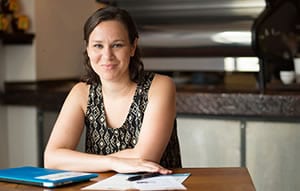Jewish Women and BRCA Gene Mutations

“If you’re an Ashkenazi Jewish woman like me, you may be at higher risk for breast cancer before 45.” —Cara, age 30
Everyone has BRCA1 and BRCA 2 genes. Some people have changes, called mutations, in these genes. One in 40 Ashkenazi Jewish women has a BRCA gene mutation.
Mutations in BRCA genes raise a person’s risk for getting breast cancer at a young age, and also for getting ovarian and other cancers. That is why Ashkenazi Jewish women are at higher risk for breast cancer at a young age. If your mother or father has a BRCA gene mutation, you have a 50% chance of having the same gene mutation.
If you are of Ashkenazi Jewish descent, you have a higher risk for a BRCA gene mutation. If either of the following are true, you should consider genetic counseling—
- Any first-degree relative (mother, daughter, or sister) has been diagnosed with breast or ovarian cancer.
- Two second-degree relatives (grandmother, aunt, or niece) on the same side of the family have been diagnosed with breast or ovarian cancer. These can be relatives on your mother’s or father’s side of the family.
Not every woman who has a BRCA gene mutation will get breast or ovarian cancer, but having a gene mutation puts you at an increased risk for these cancers.
- About 50 out of 100 women with a BRCA gene mutation will get breast cancer by the time they turn 70 years old, compared to only 7 out of 100 women in the general U.S. population.
- About 30 out of 100 women with a BRCA gene mutation will get ovarian cancer by the time they turn 70 years old, compared to fewer than 1 out of 100 women in the general U.S. population.
Understanding your cancer risk and being proactive about your health may help you lower your risk for getting breast or ovarian cancer at a young age, or find it at an early stage when treatment works best. Find ways to take action.